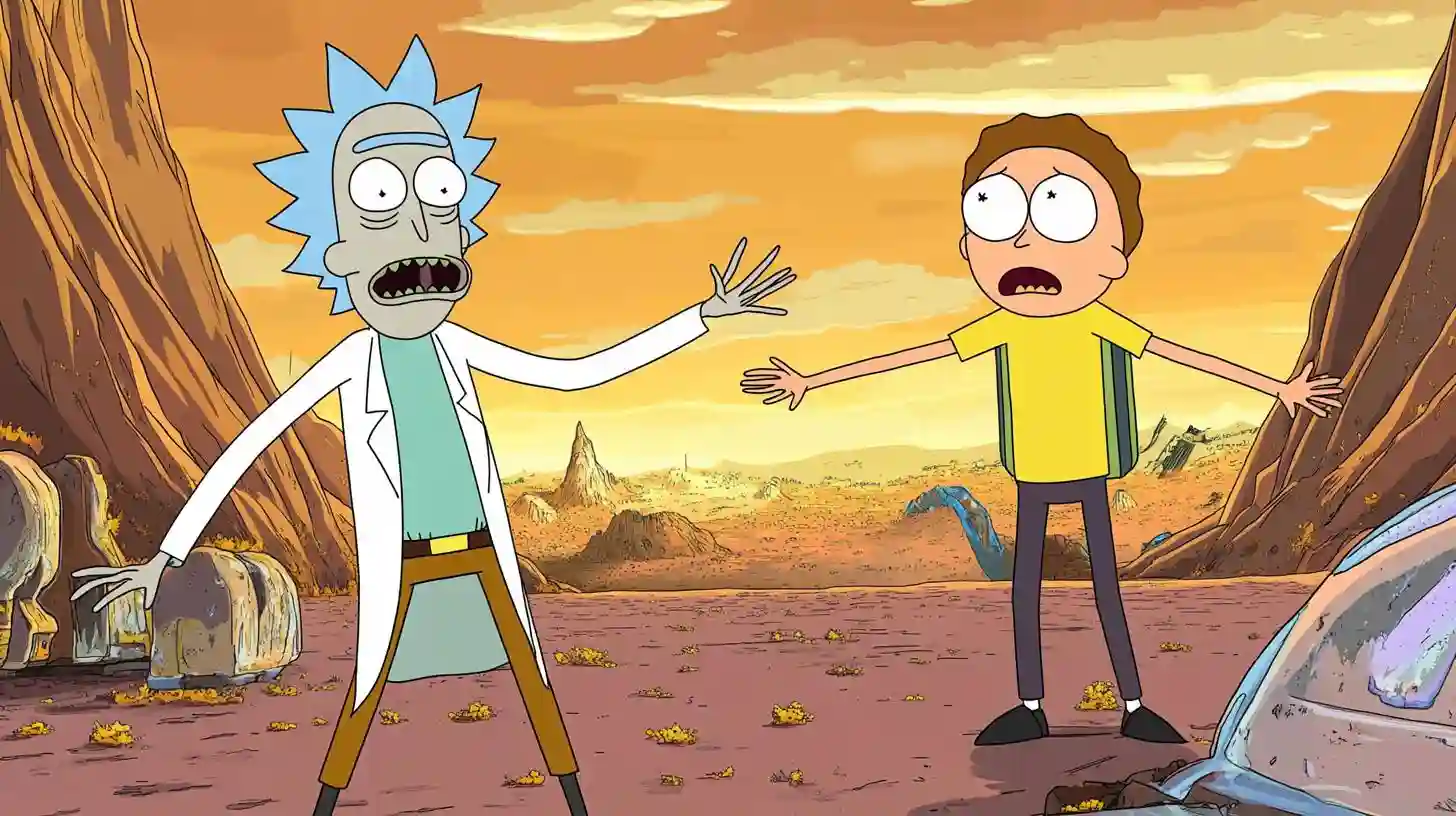
The animated television show "Rick and Morty" has carved out a unique niche within the realm of adult animated sitcoms, effectively redefining what a sci-fi series can be. Debuting in two thousand and thirteen, this creation of Justin Roiland and Dan Harmon quickly gained popularity for its unconventional narrative structure, complex characters, and existential themes. The series is not merely a vehicle for humor; it delves into the intricacies of family dynamics, mental health, and the burdens of intelligence, all set against a backdrop of interdimensional escapades.
At its core, "Rick and Morty" revolves around the misadventures of Rick Sanchez, a cynical and morally ambiguous scientist, and his good-hearted but often naive grandson Morty Smith. Their journeys take them across various dimensions and realities, where they encounter a multitude of strange beings and surreal situations. The show's brilliance lies in its ability to juxtapose absurdity with poignancy. While the narrative often veers into outrageous territory, it continuously explores deeper philosophical questions about existence, free will, and the nature of happiness. This thoughtful blend of comedy and philosophy distinguishes "Rick and Morty" from traditional animated sitcoms, which often prioritize humor over complex themes.
Another notable aspect of the series is its character development. Unlike many sitcoms that rely on static character archetypes, "Rick and Morty" allows its characters to evolve in response to the events around them. Rick, for all his intelligence and bravado, grapples with profound personal issues, including addiction and a strained relationship with his family. Morty, initially portrayed as a bumbling sidekick, gradually grows into a more assertive and self-aware individual. Such character depth adds layers to the storytelling, making the interactions between characters resonate on a more emotional level.
The show’s mastery over its narrative structure plays a pivotal role in its success. Traditional sitcoms often adhere to formulas that culminate in neatly wrapped storylines by the episode's end. "Rick and Morty," on the other hand, frequently embraces nonlinear storytelling and episodic universes that connect in unconventional ways. This allows for a greater sense of freedom in narrative experimentation. Episodes can range from humorous and light-hearted to dark and contemplative, reflecting the unpredictable nature of life itself. The ability to pivot between different tones lends the show a dynamic quality that keeps viewers engaged while challenging them to consider intricate themes.
The humor presented in "Rick and Morty" is another defining characteristic. The series employs a trademark blend of dark comedy and whimsical absurdity. While the show indulges in slapstick and visual gags, it also delivers sharp, witty dialogues filled with cultural references, scientific concepts, and philosophical musings. This multi-layered humor appeals to a broad audience, inviting viewers to dive deeper into the implications of each joke. Fans appreciate not just the laughs but the intellectual challenge the show poses, making it a topic of discussion among those who enjoy dissecting its intricate layers.
The show has also brought to light significant contemporary issues through its narrative arcs. Themes such as mental health struggles, the effects of toxic relationships, and the challenges of growing up are interwoven into the science fiction framework in ways that resonate with adult audiences. Characters face moral dilemmas that force them to confront their motivations and the repercussions of their actions. By exposing the vulnerabilities of its characters against a backdrop of interdimensional chaos, "Rick and Morty" evokes empathy and reflection.
Moreover, the animation style and production value contribute to the show's allure. The vibrant visuals are complemented by imaginative world-building, with each episode presenting new and bizarre settings that are often a feast for the eyes. The creativity expressed in the designs of alien species, futuristic technology, and the various realities adds an additional layer of engagement for viewers, inviting them to explore the expansive universe crafted by the creators.
In the landscape of adult animated sitcoms, "Rick and Morty" stands out as a groundbreaking work that pushes boundaries and invites philosophical inquiry through its unique blend of humor and depth. By exploring complicated themes within the framework of a sci-fi adventure, the show challenges other series to elevate their narratives while catering to an adult audience. Through its exploration of character complexity, inventive storytelling, and intellectual humor, "Rick and Morty" has firmly established itself as a pivotal work in reimagining what animated television can achieve. It not only entertains but also inspires thought and conversation, engaging a diverse audience in new and challenging ways.